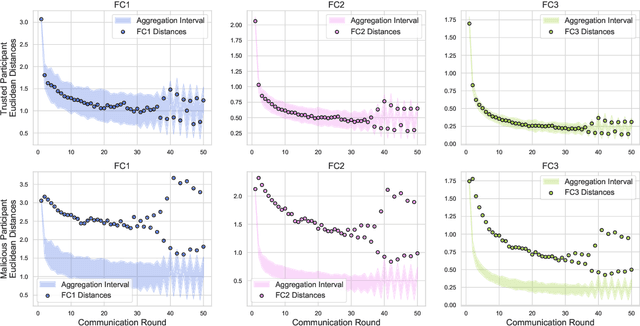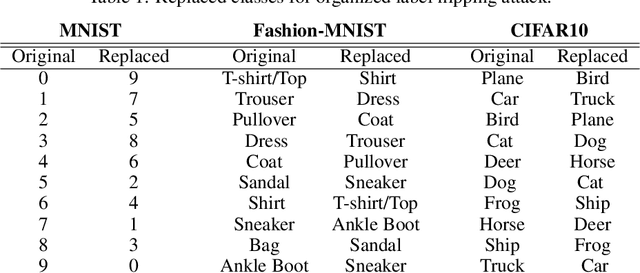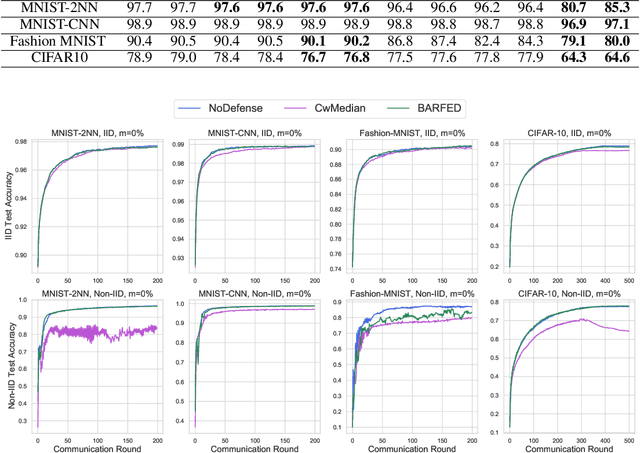BARFED: Byzantine Attack-Resistant Federated Averaging Based on Outlier Elimination
Paper and Code
Nov 08, 2021



In federated learning, each participant trains its local model with its own data and a global model is formed at a trusted server by aggregating model updates coming from these participants. Since the server has no effect and visibility on the training procedure of the participants to ensure privacy, the global model becomes vulnerable to attacks such as data poisoning and model poisoning. Although many defense algorithms have recently been proposed to address these attacks, they often make strong assumptions that do not agree with the nature of federated learning, such as Non-IID datasets. Moreover, they mostly lack comprehensive experimental analyses. In this work, we propose a defense algorithm called BARFED that does not make any assumptions about data distribution, update similarity of participants, or the ratio of the malicious participants. BARFED mainly considers the outlier status of participant updates for each layer of the model architecture based on the distance to the global model. Hence, the participants that do not have any outlier layer are involved in model aggregation. We perform extensive experiments on many grounds and show that the proposed approach provides a robust defense against different attacks.
 Add to Chrome
Add to Chrome Add to Firefox
Add to Firefox Add to Edge
Add to Edge